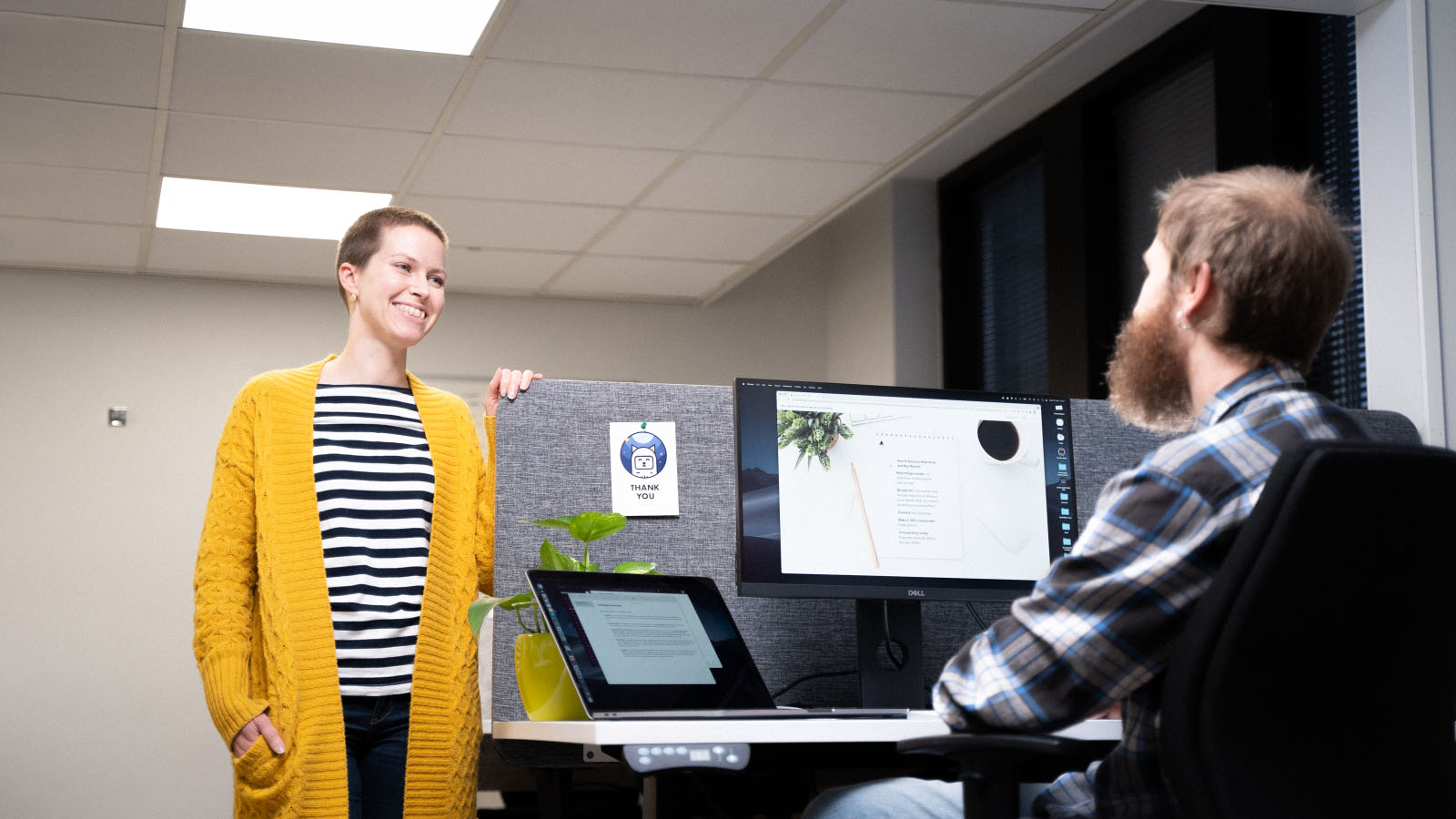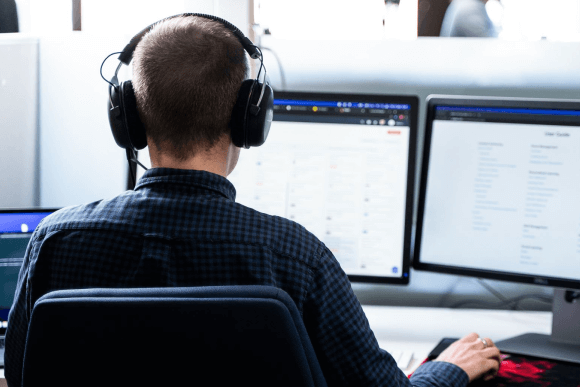How Valamis supports and encourages employees to learn
Development is one of our core values. It is a continuous process that requires support from both organisations and individuals.

At Valamis, development is one of our core values. We define development as:
“Every one of us wants to continuously develop our skills. Our work is more than just work; it is an opportunity for development and to challenge ourselves.”
We believe that learning and developing is a matter of willingness, seeking opportunities for development, and being ready to take on challenges. It’s an ongoing process that will always require support from individuals and organisations alike.
In this blog, I will expand upon how the Valamis culture supports our employees to learn and develop.
Learning at work
It’s needless to say but I’ll say it anyway: no matter how many courses you have or how many working hours you spend on learning, it’s never enough without having a real opportunity to practice your skills and take on new challenges.
The work we do for and with our customers is the best driver for our development as we are constantly learning whilst collaborating together with customers and our colleagues. Our managers actively support their team members in career path planning and everyone has the opportunity to change from one role to another inside the company. I am living proof of this myself, having transferred from digital learning consulting to L&D. Indeed, all of our current product managers and product area leads were hired internally, and Aleksandr Muravev’s career story is an excellent example of that.
In order to support individual career development, we rely on openness. Our career roles are clearly defined and openly available for all employees. This way, everyone can see what it takes to reach the next step in their career at Valamis. For example, our senior-level employees are expected to be able to coach and help junior employees. We also announce the promotions and other career advancements in the Valamis’ company monthly meetings and this lets everyone know and have a chance to congratulate their colleagues. To support horizontal career development, we always advertise new open vacancies internally and, whenever possible, fill vacancies with our current employees.
Learning with and from peers
Even though this may be the most familiar way for us, formal learning is still just one of the many ways to learn. At Valamis, we value sharing knowledge and learning with peers and have developed several practises to support this:
- Mentoring programs. Used, for example, to support our senior developers in growing into a lead role (you can read more about mentoring in this blog).
- Internal presentations, such as ValamisTalks and Case Studies. These showcase experiences and lessons learned to our colleagues companywide.
- Demo coffees; over coffee breaks with a smaller group of colleagues where you can share what you have achieved.
- Technology tutoring. This is for sharing technology-related knowledge with peers who are new to the topic but want to learn about it; such as React, Kafka and ElasticStack.
- Feedback from peers. We encourage the use of thank you cards and small gifts that are available for everyone to gift in addition to regular feedback surveys.
- In addition to these activities, we also carry out regular development discussions and feedback surveys that support our learning and encourage us to reflect.
The good old training
Naturally, a big part of our development does include formal training of some kind: online courses, reading or listening to books, or instructor-led courses. At Valamis, we use our own Valamis Learning System for providing online courses and have integrated LinkedIn Learning content as part of it. We also support audiobook subscriptions, and all employees have the opportunity to take courses that interest them. Before the pandemic, we took part in conferences and classroom training and we are looking forward to continuing with these soon!
Even though according to the popular workplace learning framework 70-20-10, says that only 10% of learning at work should be formal learning, it’s often what we first think of when talking about learning and development. However, formal learning is also the part that we most often lack the time for. Valamis supports this by dedicating time each month for all employees for learning, and for sharing knowledge. Valamis’ goal is to remind us that we really value learning, and we trust that our people know bestwhat they should be learning and when.
By dedicating separate hours for learning and sharing knowledge, we also want to encourage self-reflection. To think about what you could teach others about a topic, you need to think first about what you have learnt. In our digital learning system, we try to have as much micro-learning content as possible, to make it easier to learn in the flow of work, without having to spend hours at one time. Our digital learning materials (lessons, as we call them), contain reflection tasks to boost the learning experience, no matter how short.
Encouraging to learn
No matter how great the intentions, we all sometimes need a little push and some external motivation.
Since 2021, we have been awarding “Learner of the Month”. We encourage our employees to name their colleagues who have shown strong interest and willingness to learn, supported others learn by sharing knowledge, and who have demonstrated concrete actions towards growing their own and our company’s competence. So far, we have awarded people who helped others in a massive technology change, developed very fast in their junior position, and have been very active in completing online courses.
Besides acknowledging individual success, shared goals can also be rewarding. During the last quarter of 2020, we promised to plant a tree from every five short online courses completed on our platform. The result? We planted 300 trees! This way, we could also take action towards a healthier planet and show responsibility (which is another Valamis value).
With these actions, we have aimed to encourage learning and show how much we value it as a company to make learning a part of our culture. Our actions also make our learning culture what it is (though – it’s a tricky thing to define, as Laura Overton wrote in her blog). After all, it all comes down to how well we perform and succeed together as a company.




